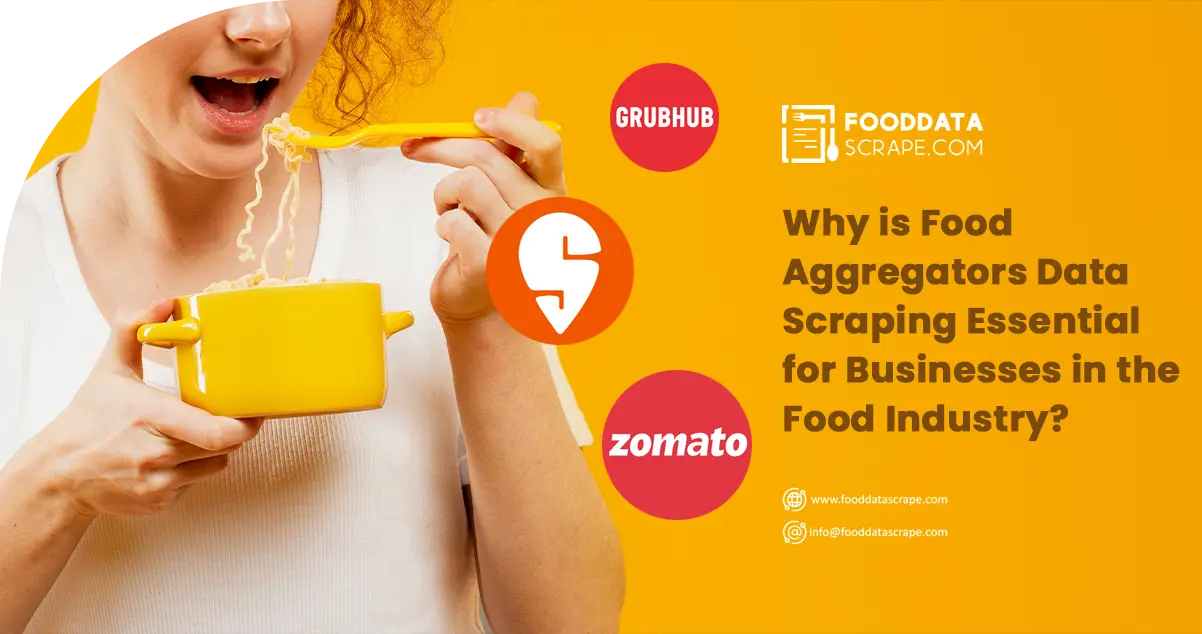Food delivery aggregators have emerged as a boon in the food industry, offering easy access to a wide range of restaurants and types of foods. Food aggregator data scraping has emerged as a most demanding process for businesses to remain relevant in this ever-changing market. By web scraping restaurant and menu data from different food aggregators, insights into customers' choices, pricing, and restaurant performance can be obtained.
Another central direction of the food aggregators' data extraction is that most of the data is related to food delivery. As more customers order food online, scraping food delivery data ensures that businesses get access to delivery times, customer feedback, and order frequency. Such data is critical in ensuring that the restaurants offering delivery services enhance their strategies to serve their customers better and outcompete their rivals.
In conclusion, food aggregators' data scraping services are becoming crucial to any company that wants to succeed in the food sector. Accessing data from platforms such as Swiggy, Zomato, and Grubhub can provide critical information that contributes to companies' success.
About Different Types of Food Aggregators

Food aggregators serve as middlemen in the contemporary food market and provide various services to customers and restaurants. Some key players in this space include Swiggy, Zomato, and Grubhub, which have distinctive characteristics and market share.
One of India's highly prominent online food ordering companies, Swiggy, ensures the timely delivery of food orders. It also has an annual plan known as Swiggie Super that offers free delivery for any order for a one-time subscription fee. Therefore, scraping data from Swiggy helps identify trends and consumer behavior, enabling businesses to re-strategize their available products to suit the market best.
Zomato is a restaurant discovery platform with services beyond delivery, including table reservations, user reviews, and ordering. It is available in several countries across the globe and is particularly famous for its comprehensive restaurant listings and easy-to-navigate website. Web scraping Zomato data can easily collect important restaurant data insights, customer reviews and ratings, and menu data for business intelligence and planning.
Grubhub is one of the most popular delivery services in the United States, although its primary function is to connect customers and restaurants. Many people in the community prefer to order food from restaurants because Grubhub offers a variety of food choices and types of eateries. When scraping Grubhub data, one can obtain information about restaurants' performance, menus, and customers, which is helpful for market research and business planning.
Why Scrape Restaurant and Menu Data from Food Aggregators?

By scraping restaurant and menu data from food aggregators, competitors, market trends, customer preferences, and operational performance can be learned.
Competitive Analysis: Food aggregators' data scraper helps companies track competitors' activity, including their menus, prices, and consumers' feedback.
Menu Optimization: Menu data analysis helps businesses determine the most ordered meals, change prices, or modify the offers to meet customers' expectations and increase revenue.
Market Trends: Collecting data is particularly valuable to a business because it provides real-time information about market trends and the food industry.
Customer Insights: Looking at menu data can help to identify the tendencies of micro and macro consumption, the specific needs of people when choosing a meal, and their potential actions.
Operational Efficiency: Food aggregators' data scraping services can be crucial for tracking stock status, sales trends, and optimizing supply chain operations for business performance.
Many online food aggregators heavily rely on restaurant and menu data scraping services for their functionalities. These platforms can present users with more accurate and up-to-date information by scraping data from restaurant menus and listings to the platform.
Conclusion
Collecting restaurant and menu data from food aggregators has several advantages for enterprises in the food sector. It gives information about competitors' tactics, assists in finding the best approaches to menu and prices, and indicates the tendencies in customers' demand. The analysis of such data is pivotal in making crucial business decisions, enhancing productivity, and maintaining competitiveness in a constantly changing environment. With the help of a restaurant data scraper, one can easily collect and analyze this information. At the same time, businesses can gain an advantage over their competitors, improve their products and services, and, therefore, have more significant opportunities for success in the food sector.
Are you in need of high-class scraping services? Food Data Scrape should be your first point of call. We are undoubtedly the best in Food Data Aggregator and Mobile Restaurant App Scraping, and we render impeccable data analysis for strategic decision-making. With a legacy of excellence as our backbone, we help companies become data-driven, fueling their development. Please take advantage of our tailored solutions that will add value to your business. Contact us today to unlock the value of your data.
Get in touch
We will Catch You as early as we recevie the massage
Trusted by Experts in the Food, Grocery, and Liquor Industry






























































































